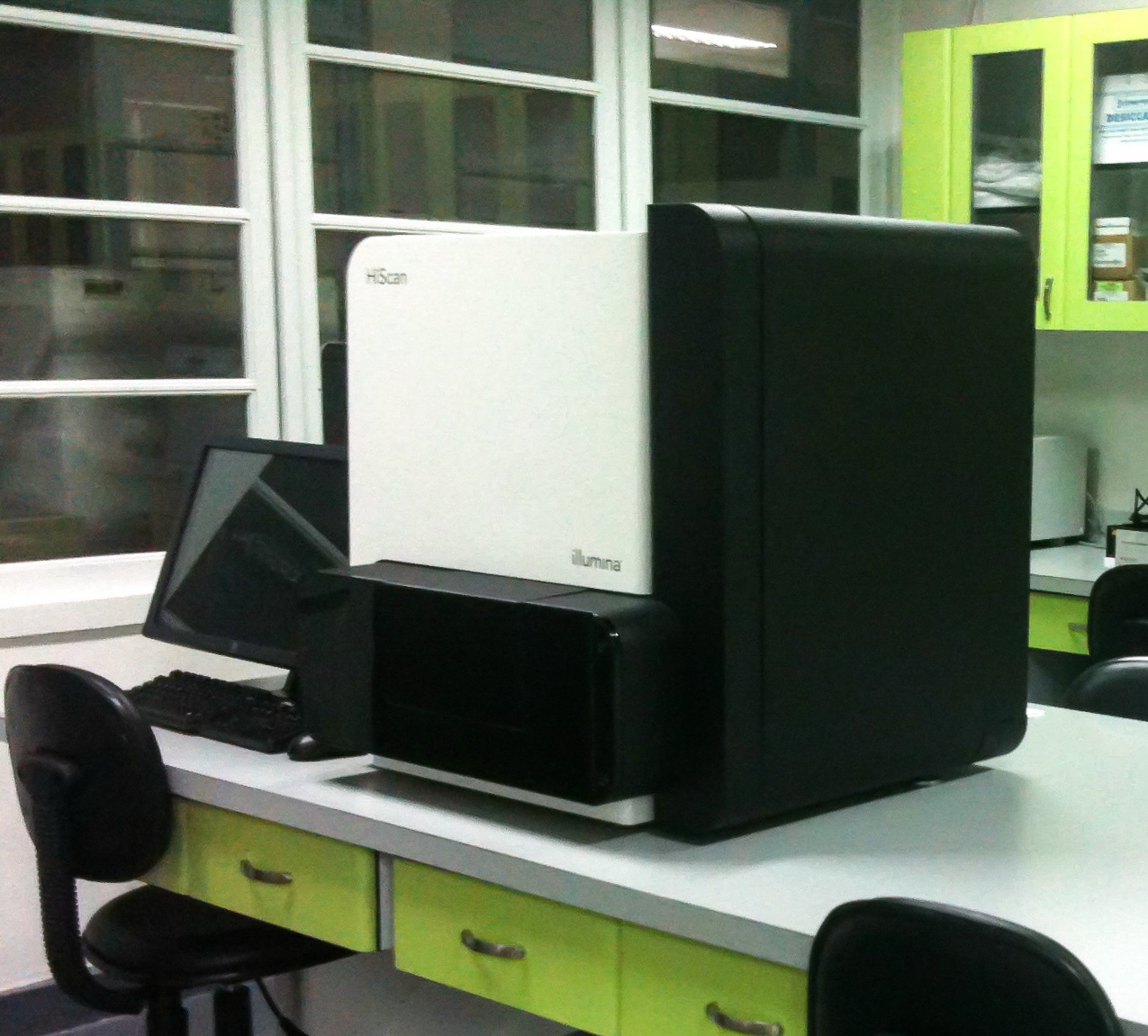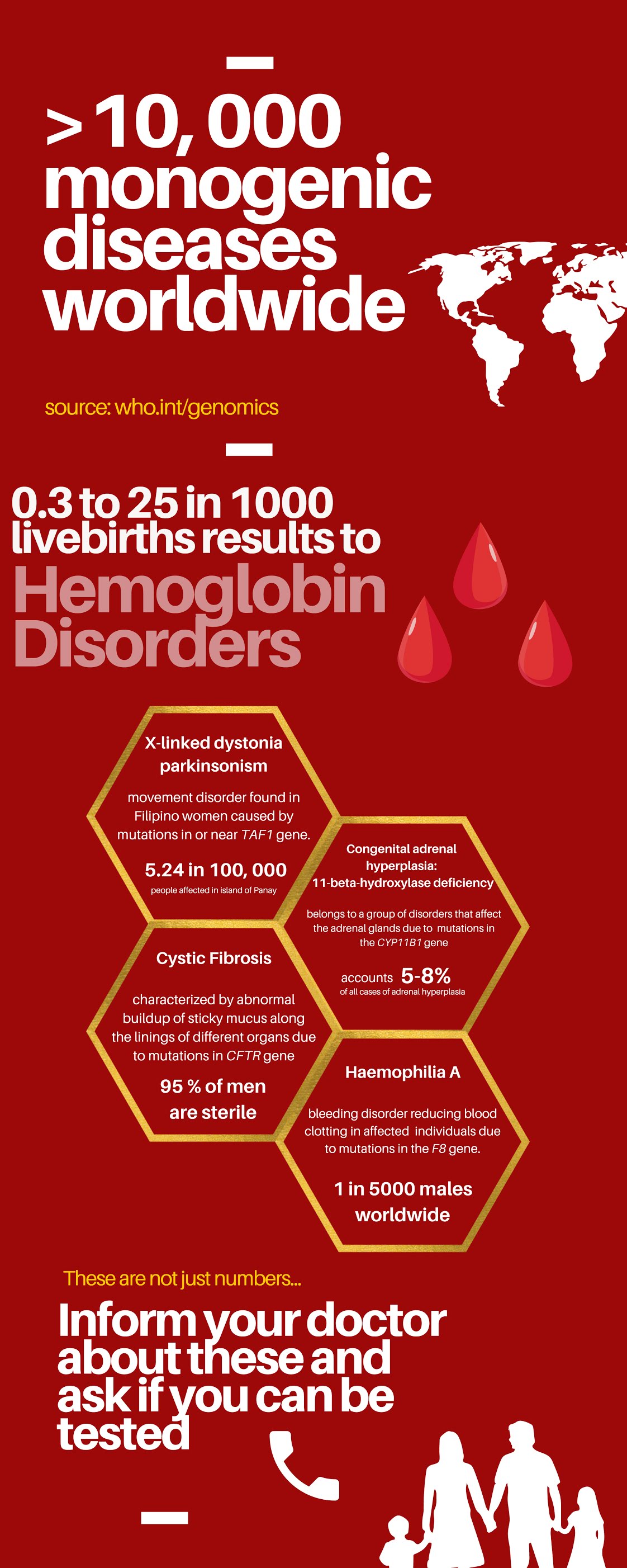ABOUT USThe Institute of Human Genetics (IHG) began in 1990 as the Medical Genetics Unit of the University of the Philippines-College of Medicine which in 1999 became one of the service and research oriented institutes of the National Institutes of Health-University of the Philippines Manila (NIH-UP). Since then, IHG expanded its services to become the largest provider of genetic services in the country - providing diagnostic, research and clinical management services in support of RA 10747 or the Rare Disease Act of the Philippines and the RA 9288 or the Newborn Screening Act of 2004. |
Molecular Research and Diagnostic Unit (MRDU)
|
|
 |
The Molecular Genetics Unit is the service arm of the MRDU. It offers services for the diagnosis of genetic disorders including conditions in the Expanded Newborn Screening Program of the Philippines. The unit provides a confirmatory testing service for newborns screened with Thalassemias, Hemoglobin Variants, and FAOD and functions as the sole laboratory in the country that provides genetic analysis for patients with XDP.
|
|
EXISTING SERVICES AND PROJECTS: *Cost of tests and services will be provided upon request. |
|
||
|
|||
|
CURRENT RESEARCHES:
|
|||
|
Most notably, studies conducted by our researchers on Thalassemias and Hemoglobinopathies have merited the unit's full responsibility in performing confirmatory testing for newborns screened for Thalassemia via the Expanded Newborn Screening Program. The unit is also the sole laboratory in the country that offers XDP genetic analysis. Both of these tests are products of the researches implemented - a testament to the success of the researches done in the unit. |
 |
The Microarray Core Unit is the research arm of the MRDU. It continues to host two of the country’s microarray facilities and conducts research services on pharmacogenetics, the genetic basis of relevant diseases among Filipino, drug discovery, and development of molecular testing procedures using high-throughput genetic association and gene expression profiling. As such, the laboratory is involved in translational research that may help aid clinicians in their care for patients. In addition, the laboratory also offers molecular research services to interested research proponents and investigators.
|
|
What is Microarray? Variations in DNA can result in various conditions or phenotypes. Single nucleotide polymorphisms (or SNPs) are sequences that occur when a nucleotide in the DNA differs between paired chromosomes or biological species. Microarray is a technique used to detect multiple target sequences in an organism’s genome. It can genotype multiple regions in the DNA (deoxyribonucleic acid), can be used to measure expression levels of large number of genes using RNA (ribonucleic acid) simultaneously, and it can also detect changes in DNA methylation.
These applications can be used to: look for biomarkers associated with certain conditions; seek molecular targets for manipulation; and explain molecular processes related to a trait.
 |
|
Currently, the Microarray Core Unit has on-going programs and projects on the following diseases: |
RESEARCH PROJECT RECRUITMENT |
|
|
|
|
 ILLUMINA HISCAN MACHINE |
The HiScan™ Reader functions as a high-speed, precision imaging scanner for Illumina sequencing and microarray-based analyses. It is a high-resolution optical imaging instrument that uses red and green lasers to detect fluorescence information on BeadChips. |
|
| Services offered to research proponents and investigators include: | |||
|
|
||
WATCH VIDEOS
| Genetic susceptibility to Cardiovascular Diseases | Genetics of Diabetes Mellitus | Pharmacogenetic studies on commonly-used cardiovascular drugs |
|
2022 PROGRAMS/PROJECTS Title: Evaluation of plasma therapy for retarding progression and preventing complications in COVID-19 Title: Joint Project For Disease Modelling and Developing Novel Therapeutics: Initial Focus on Acute Myocardial Infarction and Blood Calibration |
|
Publications:
|
|
CARDIOVASCULAR DISEASES PROJECT - INFOGRAPHIC
|
| |

For more information contact us at: Molecular Research and Diagnostic Unit The UP-NIH MRDU |


